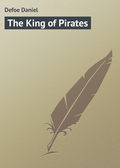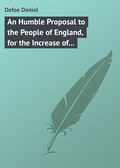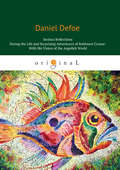
Даниэль Дефо
A Short Narrative of the Life and Actions of His Grace John, D. of Marlborogh
No sooner had our Sovereign Lady Queen ANNE mounted the Throne, but in concert with her High Allies, she proclaim'd War against France; and having created my Lord, Duke of Marlborough, she sent him her Plenepotentiary into Holland to the States, and Captain General of Her Forces; and I am sure a great many Officers who had serv'd under him in the former War, were glad to see him once more at the Head of an Army.
In the beginning of this first Year of the War, the French Army, under the Conduct of Mareschal Boufflers, was a little beforehand with us, and came into the Field stronger than ours; some Troops of the Allies having not yet join'd us. The French had coop'd up our Army under the Walls of Nimeguen, and much ado we had, by frequent Skirmishes, to hinder them from investing that considerable Frontier, at that time unprovided by the neglect of the Governour, as 'tis reported, of all warlike Necessaries for the Defence of it. A Man might then see but an indifferent Ayre in the face of our Forces: The States were under great Apprehensions, least the Enemy should penetrate into their Country; and nothing could recover them from their Fears, till his Grace, after three or four Days, had join'd our Army with some additional Troops; upon his Approach we had immediately a new Scene of Affairs; each Soldier seem'd to receive a new Life by the Cheerfulness of their Officers; and he presently assured the Deputies of the States, that the French should be no longer their bad Neighbours, but he would oblige them to March farther off that Country, and that with a Witness. They were like People in a Trance, and could hardly believe that their Affairs had receiv'd so happy a turn; accordingly we march'd, and having passed the Maes, Coasted along that side of Brabant, which lies towards that River, towards the open Country of Mastricht and Luickland, and not long after, almost in Sight of their Army, we opened that noble River, to the great Benefit of the Trade of the Country, having taken from the French the Fortresses of Stochum, of Stevenswaert, of Ruremond, and Venlo, and at last the strong Cittadel and City of Liege, with a vast quantity of Cannon and Prisoners; the French not daring to relieve any of them by venturing a Battle.
In this Campaign our General shew'd himself a true Master of his Art, having outdone the French Mareschal in every March. When he came into Holland, he was receiv'd into their Cities, as their Tutelar Angel, and their own Generals came to thank him for this happy Campaign, without any sign of Envy.
When he returned to England, he was well receiv'd by the Queen his Mistress, and with the Joy of all good People; but then there was some allay to this good Fortune, several People were heard to Grumble, that after this Manner we should not get to Paris in a long time, and a Speech was Printed, as if a Peer of the Realm had been the Author of it, with some ironical Touches on the Duke, about raising the ancient Valour of the Nation; and that 'twas unreasonable, that one Man should have a King-Key, which should open every Door in the Nation.
About this time also Pamphlets began to fly, much reflecting on the Countess of Marlborough, which I think have not ceas'd, but very much increased against her every Year, to this very Day. I never had the Honour to see that Lady, but once at the Hague; she was there with her Husband, the last time our late King was in that Country; and it was a common Report, at that Court, among a great many Gentlemen of very good Quality, that she was esteemed there among the Foreign Ladies, one of the best bred Women of her Age; and here are Ladies from most Courts of Europe, who, without doubt, are the nicest Judges: But to be sure here at home they give her Name very poor Quarters, and make her guilty of more Folly, than a Retainer to the College in Moor-Fields.
It will be too long for me to set down the particular Victories of every Campaign, and I hope no need of it; because 'tis probable they are fresh in the Memory of every good Subject. His wonderful and conquering March to the Banks of the Danube; His artful Passing the French Lines, purely owing to his own good Conduct; His Beating each one of the French Great Mareschals round in their Turns, in several well fought Battles: A People, who for an Age had bullied the rest of Europe, and had taught other Nations the Art and Tactiques of War, as well as their Modes and Language: Their Captiv'd Generals and Conquered Towns, perhaps the Strongest in the Universe, demonstrate not only his Wisdom, Skill and Conduct, but also his surmounting Courage, and unwearied Labour.
And now at first View a Man might wonder how it should come to pass that such a Renown'd General, after so many Signal Services, and great Actions, for the good of his Country, should be so undervalued and slighted at his return home from the very middle of his Labours, by any one who pretends to value the good of his Nation: But this is no new Thing, all the Histories of the World are full of Examples to this purpose, and most of them of Men of War and Great Captains.
Sir Walter Raleigh has mustered up a long Roll of Glorious Sufferers, from the most ancient to his own Times; and in the Condition in which he then was, might have brought in himself for a remarkable Sharer. For the most eminent Virtues are but as so many fair Marks set up on high for Envy to shoot at with her poysonous Darts, and in all States, 'tis sometimes dangerous to be Great and Good, for cunning Envy is often very strong, and when once its Devices are effectually spread in the Mouths of the Multitude, will produce a Blast able to blow down the most lofty Cedar: 'Tis therefore for the good of the common People of the Nation, that I shall let them see the scandalous Reflections which are scattered abroad on the Honour of the Duke of Marlborough; and when I have shewn to any rational Man that they are all False, Unreasonable, and Malicious, I have my End.
The first Scandal that is put abroad upon his Grace is this: That he has avoided several Opportunities of Fighting, not considering the great burden of Taxes that lies upon the Nation, because the War should be continued longer, whereby he may increase his Riches, and keep up his Power. Now how false this Report is, will easily appear.
For the Business of Peace and War does not depend on a General: 'Tis the Business of his Monarch, who best knows the proper times for such Treaties. Other Princes are concern'd in the War, as well as ours, and their Subjects are as desirous of Peace as any of us can be, yet this Peace can't well be obtain'd without a joint Consent; but if the Enemy against whom we Fight, will not come to any terms of Peace that are Reasonable, and Honourable, and Just, and upon which the War is founded, but in his pretended Treaties, chicanes and falsifies, and is altogether Insincere, then 'tis not the General's Fault if we can't have Peace; we are in for the War, and we must stand to it.
Indeed in the last dear Year of Corn, France was almost reduced to their last Shifts; their Sufferings could be call'd little less than a Famine, and most of the Powers of Europe did really believe that they must have sued for a Peace, if they had not been assisted; but whilst the Circumstances of this Peace were in Agitation, then did the good People of Great Britain and Ireland, the north part of them to Burgundy, and Champaign, by way of Holland, thro' the Maes; and the South Part of them from Dunkirk and Calais over-against Kent, beyond the Mouth of the Garroon on the Western Ocean, supply that Country with vast quantities of Corn, almost to the starving of their own People. Not one of them cried out for Peace, or blam'd the General, their Pockets being well fill'd; But swore in the Markets, over plentiful Nappy, that in a short time they would pull old Lewis out of his Throne.
As for our Generals avoiding Fighting, 'tis easie to guess out of what Quiver this Arrow of Scandal was drawn; for without doubt 'twas forg'd in his own Army; and seeing the Roman History is now much in Fashion, I shall give an Example, as an Answer to this Scandal, and without doubt 'tis home to the Purpose. Haniball had beaten the Romans in three great Battles of Ticinum, Trebia, and Thrasymene: 'Twas his Business to Fight the Romans wherever he could come at them; his Army being compounded of rough old Mercenary Soldiers of divers Nations, who are ready to Mutiny and Desert upon all Occasions, if they have not present Pay or continual Plunder; in this Extremity the old Fabius was chosen Dictator, or supream Commander; he was a good Man of War, and understood his Business; and for his Lieutenant, or Master of the Horse, which among them was all one, he chose one Minutius, the worst thing that ever he did; because in a short time he found him to be an Ungrateful, Conceited, Hot-headed Accuser. Fabius with great skill and caution avoided Battle by Coasting Hanibal on the sides of Hills in rough Ground, by Woods and Rivers, and hard Passes; because much inferior in Horse to the Carthaginian; and thereby gain'd time to confirm the Hearts of his Soldiers, and so make them capable by degrees to look the Enemy in the Face. Hanibal soon found that by no means he could draw in this wary old Gamester, but declar'd, that he fear'd nothing more than that Clowd which hung about the Hill Tops, least some time or other it should fall down and severely wet him. Winter coming on, and the Dictator being obliged to return home about some other Affairs; He left his Army to the Care of this Master of the Horse, with a strict charge to shun Fighting with all possible Care, and to follow the Example which he had set before him: He was prowd of this Opportunity of Commanding the Army, and believ'd himself the best and the ablest Man for it; he procured to have his Courage magnified at home among the common People, and that if he had a Command equal to the Captain General, he would soon give a better Account of Hanibal and his Army; that Fabius was afraid to look towards his Enemy, and thereby disheartned the Soldiers, who were otherwise naturally Brave; and by his Fearfulness suffered these Barbarians to Ravage in their Country, to their Ruine and Destruction. The Tribunes of the People, not much better than Captains of the Mob, were his particular Friends, and they complaining to the Senate, every where gave it out, that after this manner of Fabius his going on, the War would never have an end, that the City would be undone by perpetual Taxes; that all Trade was ceas'd, and nothing to be seen among the Commons, but a sad Prospect of growing Poverty.
The Senate was wearied out by these Factious Importunities, till at last 'twas granted, that the Master of the Horse should have equal Command with that Great Man who would preserve them from Ruine. Accordingly he receiv'd half of the Army to be under his Charge, by a Lot, for Fabius would not endure, because he foresaw what would come to pass, that it shou'd be in his Power, for one Day, to command the whole. Minutius, forsooth, to show his Bravery, march'd nearer to the Enemy. Hannibal had laid a Train for the Hotspur, and soon caught him; and both he and his Army had been soon cut to pieces if the Old General, not permitting private Revenge to interfere with the good of his Country, had not drawn down in very good Order, repuls'd the Ambush, and secur'd his Retreat. The best thing that Minutius cou'd do, was to beg Pardon for his Fault, and promise more regard to his Superiors for the future. So that you see 'tis the Experienc'd, Skilful, Old General who is best Judge of times of Fighting; and that Man who asperses his Honour is to be suspected as either wanting Judgment, or an Enemy to the Publick.
Another Scandal was lately rais'd against his Grace, as touching his good Conduct and Skill, as he is a General; and this is much among those sort of People, whose Mouths go off smartly with a Whiff of Tobacco, and fight Battles, and take Towns over a Dish of Coffee. They give out, like Men of great Understanding in the Art Military, that the Duke is more beholding to his Good-Fortune than his Skill, in the Advantages he has gain'd over the French, and that he may thank the Prince of Savoy, and the good Forces which he Commands, more than his own Skill in War, for his great Reputation.
The Good-Fortune of His Grace ought to be attributed to the good Providence of GOD, for which, both he and the whole Nation ought to be thankful. 'Tis a great Happiness to have such a Fortunate General; and, without doubt, the French King would purchase such another at any rate, if he could.
But then, Nullum numen abest, si sit Prudentia. The General that is Prudent, and Vigilant, and Temperate, Alert, and Industrious, with an humble Submission to the Will of the Almighty, takes the right way of obliging Fortune to be of his Side: Or, to speak better, the Blessings of Heaven to crown his Endeavours: For in War 'tis seldom known, (quite contrary to the Old Proverb) that in conducting Armies and fighting Battles, Fools have Fortune.
As for his Acting in Concert with the Heroick Prince of Savoy, who is, without doubt, one of the ablest Generals of the Universe, and chusing of him to be his Friend and Colleague, is one of the strongest Arguments of his Art and Knowledge: Mutual Danger, and mutual Principles of Honour, have entirely united them. In all difficult Points they presently agree, as if what one was Speaking, the other was Thinking of the same Matter at the very same time: And no Person can believe, that Prince Eugene would endure that any Person in the World should share with him in his Fame and Glory, unless such an Hero, whom he thinks in all Points to be his Equal. As for the Troops under his Command, 'tis evident to the World, that they excel all others; for the sake of their Countries they are prodigal of their Blood; and under such a General, by their own Confession, when they go to Action, think of nothing else but Victory and Triumph.
But Matters of Fact are the best Arguments. Amongst the great number which might be produc'd, I shall only Instance these two following; and I am sorry that those People who have not seen Marching or Embatteling Armies cannot be competent Judges of them. Let the first be in the first Campaign, in the first Year of Her Majesty's Reign. We were encamp'd on the Confines of Brabant, not far from a little Town call'd Peer; the Country round about is almost all great Heaths and large Commons; we were in full March betimes in the Morning, and, by the countenance of our March, 'twas suppos'd we should have a long and a late Fatigue; when, on a sudden, about Eleven a Clock, we had Orders to halt, and to encamp at the bottom of an Heath, behind some rising Grounds and great Sand-Hills, near a Place called Hilteren; and according to the Time that my Lord Duke had projected, Mareschal Boufflers, with his Army, was blunder'd upon us, within Shot of our Cannon, not knowing where we were. At that time we were superior to the French, especially in Horse; they could by no means avoid a Battle, the Mareschal was caught: And if the Deputies of the States, and their Generals, could have been perswaded to venture a Battle, in conjunction with the other Allies; and they were entreated enough, almost with Tears, by all the other Princes and Generals of the Army, 'tis very probable the French, under that great surprize, had been severely beaten. At last they stole away from us in a dark Night, and were glad of the Escape. And thus then you see the great Skill of our General, to entrap the French Mareschal in his March, in the middle of the Day, and to make him, in a manner, fall into his Arms.
The second Instance is from the Battle of Ramelies. A Stratagem well laid argues the great Dexterity and Penetration of a General; in deep hollow Ways, in close Bottoms, and nigh sides of Woods, Ambuscades are often laid, and, perhaps, as often discovered; but to bring an Ambush upon an Enemy, into the open Country, in the face of the Sun, requires an assured Skill, as well as a daring Courage. Thus 'tis said of the Great Hannibal, at the Battle of Cannæ, that in the open Field he brought an Ambush on the Backs of the Romans, which very much help'd to encrease their Terror and Confusion. And thus did our General, at the foremention'd Battle, but with a better Contrivance.
The French King had Intelligence given him, that all the Forces of our Army were not join'd, and accordingly sent positive Orders to his General, not to let slip that Opportunity of chastising the Insolence of the Allies, for that was the Expression; and indeed 'twas true, the Allies had been pretty bold with him several times before: and the Mareschal doubted not but to have time enough to execute his Master's Commands, before a good Body of Horse, which he understood to be at a great distance, could be able to come up and assist us. The Duke gave a pretty good Guess at the Monsieur's Designs, and before-hand had sent strict Order, that they, without the least delay, should speed immediately towards him, and in the middle of the Night, to halt at a Village where he had appointed, not above two Leagues from his Camp; and after a little Refreshment, and Preparation for Service, must be ready to move at break of Day, upon the first bruit of Cannon: For their resting in that Place, and at such a distance, would be much more to his Advantage than if they had join'd him.







